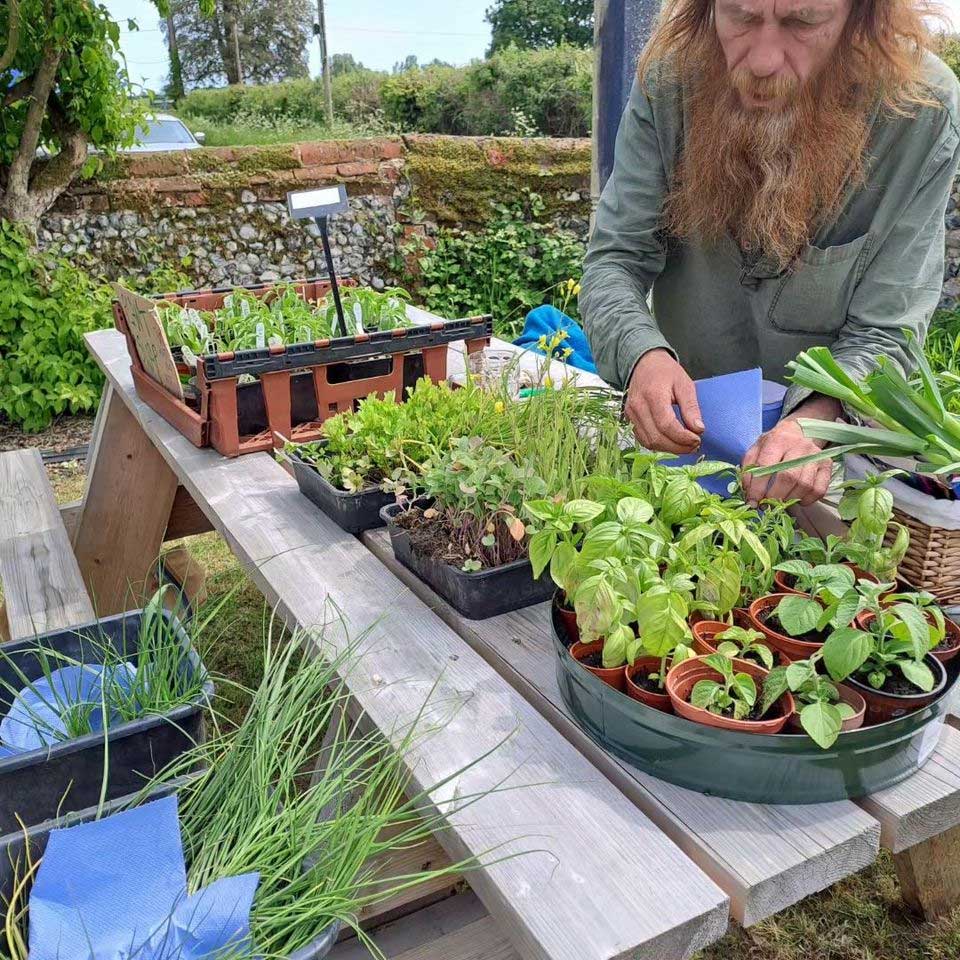Food and Farming
I am aware that many small farmers are as much victims of current systems as everyone else as they find themselves squeezed between industrial agriculture and supermarkets. There are subsidies available to increase biodiversity and money available for rewilding projects, but ultimately small farmers need to make a profit to survive and so need our community support.
2024-04-09

Promoting Local Small and Community Farms
My 9 year old grandson refused to eat the roast lamb (too cute!) on offer as main dish for the family Easter feast. But instead, roast chicken was forced upon him to provide enough protein. The rest of the family seems to believe that you need to eat some form of meat to maintain a balanced diet. But this is misinformation as there are many attractive alternatives: “we need to eat only natural food: grains, fruits, vegetables, fungi, legumes, nuts and seeds. In other words, plants, grown sustainably. The only things we would have to give up are the animal foods that are killing both us and our habitat.” (Dr Sailesh Rao) Let’s put it another way: “Cutting meat consumption in rich nations is vital to tackling the climate crisis. Livestock production causes 15% of all global greenhouse emissions. Cutting meat and dairy consumption also slashes pollution, land and water use, and the destruction of forests, with scientists saying it is the single biggest way for people to reduce their impact on the planet.
In the summer of 1972 I spent several days canoeing down the River Wye starting in the upper reaches and finishing opposite Tintern Abbey. It was startlingly beautiful, pristine and rich in wildlife. Every day huge salmon would leap out of the water nearby. Now it is sterile and dead. What happened? “The river is being polluted by excessive chicken excrement being spread on the fields from intensive poultry units and then washed into the river when it rains. Cheap chicken is not cheap at all, but hides huge environmental costs and climate breakdown impacts. This practice is typical of international capitalism's business model that depends upon exploiting natural resources but avoiding paying the true costs.“. Read even more on my website
I am aware though that many small farmers are as much victims of current systems as everyone else as they find themselves squeezed between big agriculture and supermarkets. There are subsidies available to increase biodiversity and money available for rewilding projects: use a small number of free-roaming animals to restart natural processes, creating a mosaic of wildlife-friendly habitats including woodland, species-rich pasture and free-flowing streams.
As a community we need to support these farmers in the same way as farming heroes were asked to produce food during the World War. They need to reclaim a profit back from big agriculture and supermarkets by ensuring a fairer distribution of our money.
I am also encouraged by the potential for Community Market Gardens like Norfolk’s 1-acre Eve’s Hill Veg Co that has a turnover of £96,000, supplies vegetables to eight shops and restaurants and about 50 local families, employs three paid trainees and helps put more than 40 people through their Level 1 horticultural course each year. Let’s be imaginative and ambitious and try to get schemes like this happening locally.
Chris Cooke wrote this for Bromsgrove Extinction Rebellion. For further information:XR Bromsgrove. Or email bromsgrove@extinctionrebellion.uk.